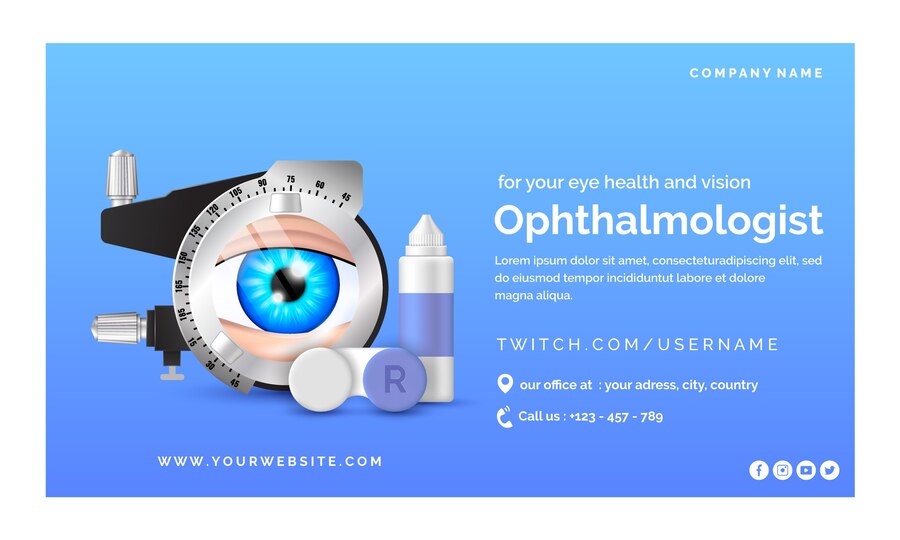Table of contents
In recent years, cannabidiol (CBD) has gained attention for its potential therapeutic effects on a wide range of health conditions. One of the more intriguing areas of study is the use of CBD for eye health, particularly for conditions like glaucoma and macular degeneration, which are leading causes of vision loss around the world. While research is still emerging, early findings and anecdotal evidence suggest that CBD might offer benefits worth exploring.
This article will dive into what science currently says about CBD for eye health, its potential effects on glaucoma and macular degeneration, and what users should consider before incorporating it into their wellness routine.
Understanding Glaucoma and Macular Degeneration

What Is Glaucoma?
Glaucoma is a group of eye conditions that damage the optic nerve, often due to abnormally high intraocular pressure (IOP). If left untreated, glaucoma can lead to irreversible vision loss. Traditional treatments focus on lowering IOP through medications, eye drops, or surgery.
What Is Macular Degeneration?
Macular degeneration, often age-related (AMD), affects the central part of the retina called the macula. This condition leads to blurry vision, difficulty recognizing faces, and in advanced stages, severe vision impairment. Treatments may include injections, laser therapy, or lifestyle changes, but no cure currently exists.
Can CBD Support Eye Health?
CBD, a non-psychoactive compound derived from the cannabis plant, interacts with the body’s endocannabinoid system (ECS). The ECS plays a role in maintaining homeostasis, including processes like inflammation, pain regulation, and even intraocular pressure.
Here’s how CBD for eye health may offer benefits:
Potential Benefits of CBD for Eye Health

1. Reducing Inflammation
Both glaucoma and macular degeneration involve inflammatory components. CBD has well-documented anti-inflammatory properties, which may help protect retinal neurons and reduce the progression of these diseases.
2. Neuroprotection
CBD has been shown in some studies to act as a neuroprotective agent, helping to protect nerve cells from damage. Since glaucoma involves damage to the optic nerve, CBD may help slow down the degeneration process.
3. Antioxidant Effects
Oxidative stress contributes to the progression of macular degeneration. CBD’s strong antioxidant capabilities might help combat this and support retinal health.
4. Regulation of Intraocular Pressure (IOP)
This is where research becomes controversial. Some early studies suggested that THC, another cannabinoid, helps lower IOP, but CBD may actually raise IOP in some cases. Because of this, people with glaucoma should be cautious and consult their eye care provider before using CBD.
5. Improved Sleep and Stress Relief
While not directly related to eye function, better sleep and lower stress levels—both achievable through CBD—can improve overall wellness and aid in the management of chronic eye conditions.
What the Research Says
The research into CBD for eye health is still in its early stages. Here’s what scientists have found so far:
- A 2018 study in Investigative Ophthalmology & Visual Science showed that CBD increased intraocular pressure in mice, raising concerns for glaucoma patients.
- However, other studies have explored CBD’s ability to protect retinal cells and reduce inflammation in models of retinal diseases.
- Some anecdotal reports suggest CBD products help reduce eye discomfort, dry eyes, or general visual strain, but this is subjective and not clinically validated.
Using CBD for Eye Health: What to Consider
If you’re interested in exploring CBD for eye health, especially for conditions like glaucoma or AMD, keep these points in mind:
- Always consult an ophthalmologist before using CBD—particularly for glaucoma.
- Use high-quality, lab-tested CBD products from reputable brands.
- Start with a low dose and monitor your body’s response.
- Be aware of any changes in vision or IOP and report them to your doctor immediately.
- Avoid substituting CBD for prescribed medications unless advised by a healthcare provider.
FAQs About CBD for Eye Health
No. CBD should not replace prescribed glaucoma treatments without medical supervision, especially as it may increase IOP in some cases.
CBD appears generally safe, but its direct impact on macular degeneration is still under study. Always consult your doctor before starting any supplement.
There is no conclusive evidence supporting CBD eye drops for dry eyes, but anecdotal reports suggest they may offer temporary relief.
CBD does not typically cause blurry vision, but high doses or interactions with medications could cause side effects. Monitor your symptoms closely.
Oils, tinctures, or capsules are the most commonly used. Avoid unregulated CBD eye drops, as they may not be safe or effective.
Final Thoughts
While the use of CBD for eye health is a relatively new and evolving topic, its potential anti-inflammatory, antioxidant, and neuroprotective benefits offer promising possibilities for those living with glaucoma or macular degeneration. However, more clinical research is needed to fully understand how CBD interacts with the eyes, particularly in people with high intraocular pressure.
If you’re considering CBD as part of your eye health regimen, consult your doctor and proceed cautiously. With proper guidance, CBD might be a valuable supplement in your journey toward better vision and overall health.





